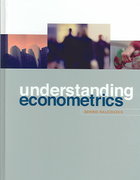Question
may, whether economies have markets that are laissez faire, loosely or tightly regulated, or whether the government is the major decision maker, markets do fail.
may, whether economies have markets that are
laissez faire, loosely or tightly regulated, or whether the government is the major
decision maker, markets do fail. That is, they fail to register the
appropriate/proper/efficient prices and quantities in the marketplace. Costs and/or
benefits may, in some markets, spill over onto people outside of the market transactions
- thus, the externality. Some are positive (my neighbor who lives to the left of me, has a
flower garden that improves my quality of life and he's done all the work) and some are
negative (my neighbor to the right of me lowers the quality of my life with the two broken
down cars he keeps on his front lawn). Noting what has been mentioned above, take a
positive externality or a negative externality and explore it in detail. Examine the role of
social costs and benefits, private costs and benefits, what role, if any, can the
government or even the private sector play in correcting the externality, is there a free
rider problem associated with it and can it be corrected? As we attempt to correct for the
externality what additional tradeoffs may the private and/or pubic sectors make? You
should use graphs to help reinforce and bolster your argument.
Step by Step Solution
There are 3 Steps involved in it
Step: 1

Get Instant Access to Expert-Tailored Solutions
See step-by-step solutions with expert insights and AI powered tools for academic success
Step: 2

Step: 3

Ace Your Homework with AI
Get the answers you need in no time with our AI-driven, step-by-step assistance
Get Started


